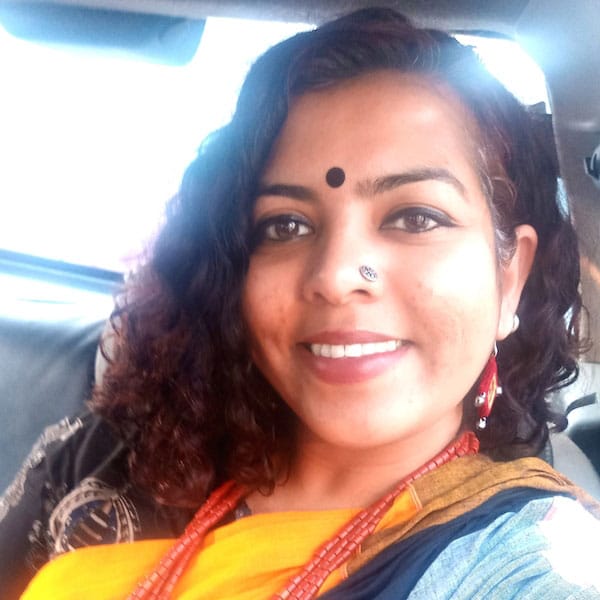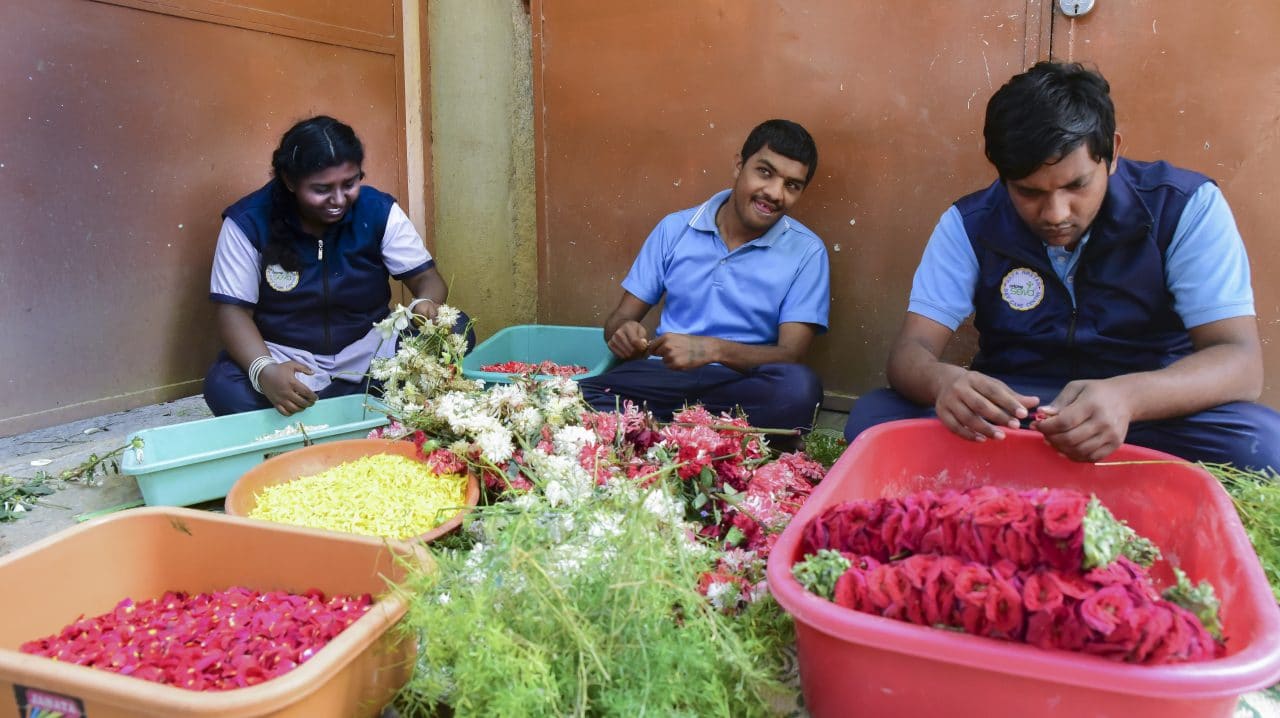There are times when you get fed up with receiving forwards on WhatsApp and then there are times when the same forwards introduce you to great souls like Mayura Subramanian – Founder and CEO at Craftizen India.
Located in Bengaluru, Craftizen India encourages the growth of better livelihoods through sustained efforts aimed at protecting the Indian craft and artisanal skills. Over the years, the organization has impacted the lives of over 300 artisans and upcycled over 33,000 kgs of discards. Among Craftizen India’s many initiatives is a safer alternative to Holi – Petalists Holi colors.
Through a unique system to recycle temple flowers into safer, natural, easily washable, non-toxic and eco-friendly Holi colors, the initiative has enabled over 200 people with intellectual disability and given them a sustained income for over six months.

In a candid conversation with LifeBeyondNumbers, she shares details about the production process and her intention behind this empowering project.
What was the thought process like behind this initiative?
While our primary objective is to enable sustainable livelihoods for marginalized communities through craft-based skills, we wanted to add one more impact layer of being eco-friendly by converting discards into useful products and that’s how the term “Green Skilling” was coined.
At first, we selected like-minded partner NGOs and understood what work they had done so far in craft-based skilling. We realized most of the skills resulted in low quality, low volume, “charity purchase” products which could not help in income generation. That is when we started researching on multiple fronts – what discards can we work with (we looked for inspiration at different models in India and abroad), what products can be developed for different market segments (corporates, home décor, and personal accessories), what kind of design development should we do in order to ensure high quality that is most suited to the ability of our beneficiaries. Once products were ready we did test marketing, took customer feedback and refined the products.
At present we are working with waste material such as temple flowers, paper-dust, fabric leftovers, silk thread discards, newspapers & magazines.
To date, 900 beneficiaries from marginalized sections including persons with intellectual disability and low-income women who have no other sustainable sources of income have been trained and are receiving ongoing livelihood support.
How do you convert petals to colors?
Once the fresh flowers are collected, the first step is to separate them as per colors, then remove the petals and lay them out for drying. Once completely dried, they are powdered, mixed with grain flour and food-grade colors to create our non-toxic, skin-friendly colors.

How would you describe the craft industry in India?
India has the maximum number of artisans amongst any other country in the world – craftspersons and handloom weavers.
Over the years I feel that on the supply side there have definitely been a lot of improvements brought about by several NGOs, design houses and individual patrons working for the betterment of Indian arts and crafts. There is certainly increased access to a larger consumer base, thanks to e-commerce and social media. Technology is also a leveler in providing access to those, particularly in rural and remote locations.
However, I feel that on the demand side, we need to do a lot more story-telling and build more awareness for what makes handmade and handcrafted products unique and worthy of patronage especially among the younger generation who have become habituated to “use and throw” products. We definitely need to inculcate a deeper connection in terms of respecting and valuing our cultural heritage.
When asked for the top 3 reasons the youth must get onto handmade trends for a sustainable future, Mayura had an interesting response. Check it out below:
View this post on Instagram
Where do you draw inspiration from in order to sustain the initiative?
I consider myself fortunate to be able to pursue my passion full-time. I realized early on in life that there is no downside to taking a calculated risk with your career, particularly when you truly and passionately believe in something. Yes, entrepreneurship does come with a lot of uncertainties and things beyond your control, but the learning curve for me has been the most exhilarating experience of my life.
I grew up not ever having to worry about basic necessities – food, shelter, or education. The fact that this is something the majority in our country does not have access to always troubled me. My passion for being involved in the development sector stems from the deep inequality which runs in our society.
Make a pledge to brighten up someone else’s life in any way you can contribute, to any worthy cause. The world needs a lot of goodness!
Mayura Balasubramanian, Craftizen India
Visit Craftizen to place your orders for Petalists Colours and stay updated on all their latest projects and initiatives.

